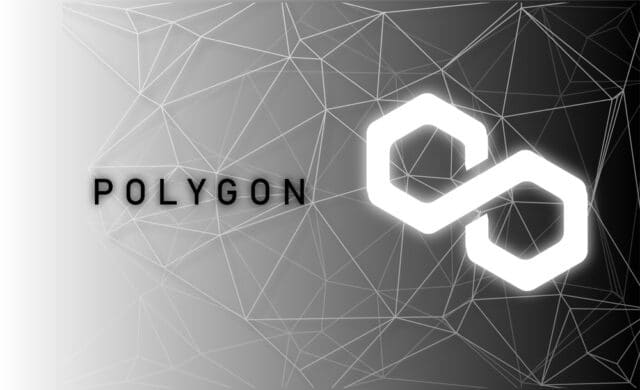A decentralized exchange (DEX) is a financial platform that allows people to buy and sell cryptocurrencies and other tokens using the blockchain industry. The exchanges are significantly different from centralized companies like Binance, Coinbase, and Kraken. In this article, we will look at the best DEXs built using the Polygon blockchain.
DEX vs. CEX
A DEX is a financial platform that uses the concept of smart contracts to help people provide liquidity and swap tokens in an easy way. They are different mostly because they tend to be cheaper than conventional exchanges, and they don’t collect user data. Instead, all they require is a person with a cryptocurrency wallet such as Metamask.
Another useful feature of a DEX is that it usually runs its private token that lets holders take part in its governance. They can vote to change the fees the platform charges and the tokens it provides. Notably, these holders usually receive a payment, which is generated through fees.
Centralized exchanges, on the other hand, are managed by their owners, who determine the fees charged. These exchanges are also different because the companies pocket all the profits and make decisions on who can be allowed and excluded. Most importantly, they take a lot of user data, such as email addresses and phone numbers.
What is Polygon?
Polygon, on the other hand, is a blockchain project that uses several technologies to solve the biggest challenges that Ethereum has. It is known as a layer 2 application because it ensures that transactions are processed outside of Ethereum’s network.
As a result, Polygon transactions are cheaper, faster, and more reliable than those of Ethereum, which explains why thousands of developers have embraced the platform. So, here are some of the best-decentralized exchanges created using Polygon.
Balancer
Balancer is a blockchain project that was initially built using Ethereum’s technology. In 2021, the developers decided to launch the service on Polygon in their attempt to lower transaction costs and improve efficiency. It also unveiled another option developed in Arbitrum.
Balancer offers several products and services. The main product is automated portfolios that let people earn a return. It also has a decentralized exchange that allows people to trade and swap cryptocurrencies.
The trading ecosystem is powered by liquidity providers, who give their coins to the network with the goal of generating a return. Its website says that it processes about $716 million in a week while generating fees worth $72 million.
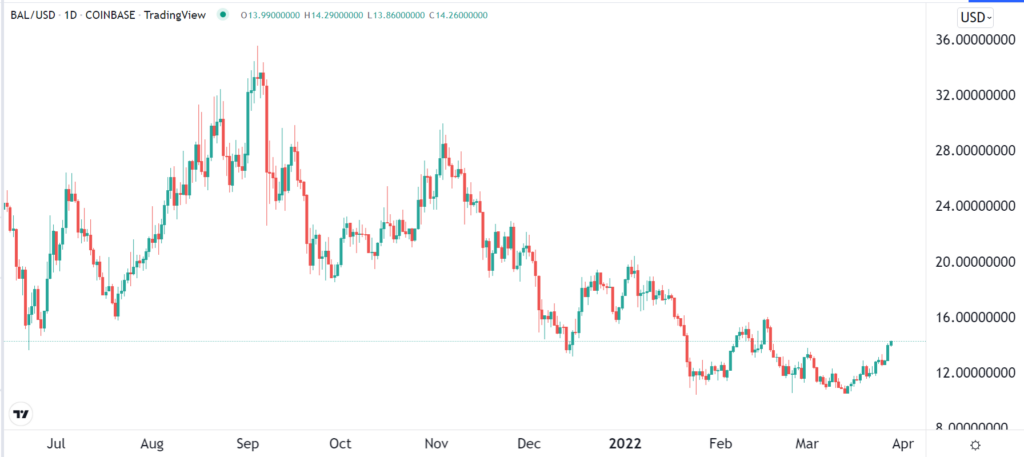
Balancer has a combined total value locked (TVL) of over $2.2 billion, with most of them being in its Ethereum version. Its Polygon platform has a TVL of more than $251 million. It also has a coin known as BAL that is valued at $150 million.
Bancor
Bancor is another decentralized exchange built with Ethereum and supercharged using Polygon. Like Balancer, it has two main services: trade and earn. The earn product allows people to generate passive income by investing in staked tokens. It also has a liquidity pool service.
Its trade service has features that let people make money by executing trades of all types of digital coins. Bancor has total liquidity of over $1.2 billion and a 24-hour trading volume of $150 million. Most of this liquidity is in the main Ethereum platform. Its Polygon app is a bit small, but it is seeing substantial growth.
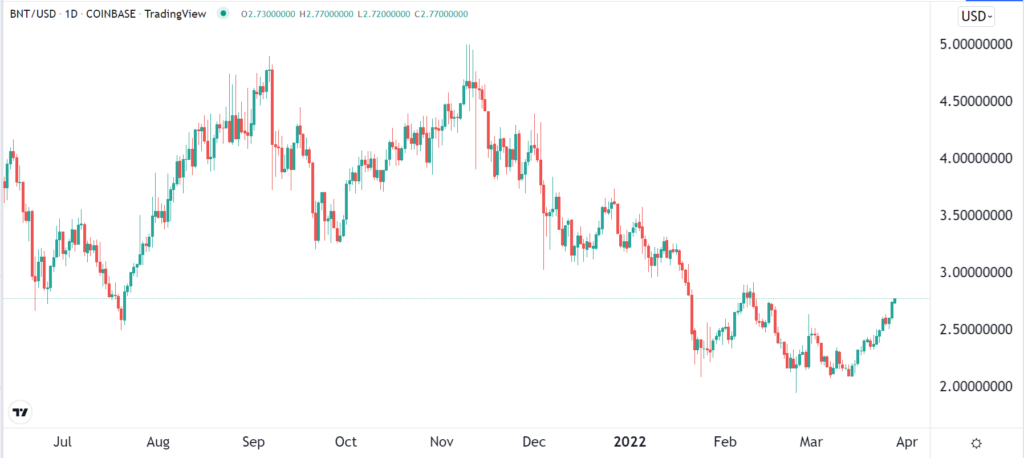
Bancor also has a native token for its ecosystem known as BNT. According to CoinGecko, this token has a market cap of over $713 million.
Uniswap
Uniswap was one of the first decentralized exchanges ever started. The first versions of the network were built using Ethereum, where they found a lot of success.
Today, Uniswap is a leading DEX that offers various services. Its flagship product allows people to swap and trade multiple products. Over the years, it has also launched a product that enables people to build separate DEXs based on its technology. Some of the apps built using Uniswap’s technology are Brink Trade, Alpha Finance, and InstaDapp.
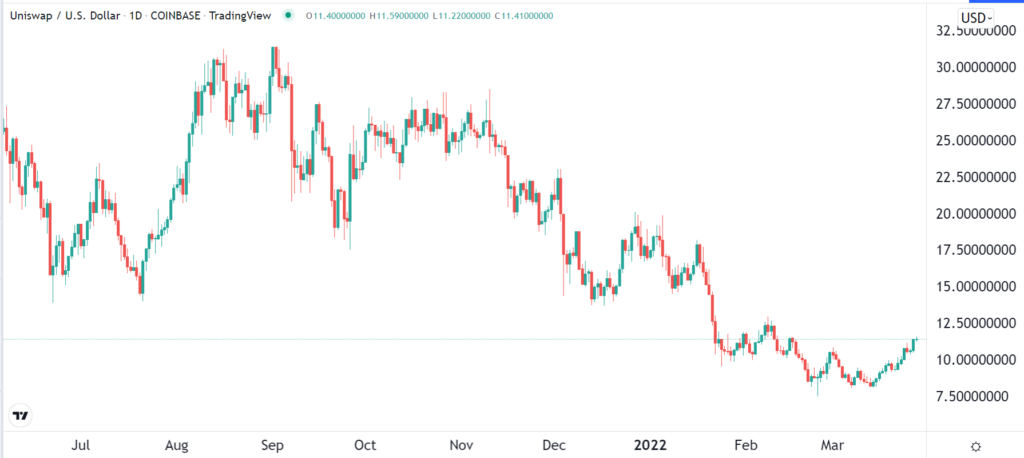
Uniswap is one of the most successful DEXs in the market today. It has handled transactions worth over $880 billion. Also, it has millions of users from around the world. UNI, its native token, is also the biggest DEX token, with a market cap of $5.16 billion.
Uniswap has a combined TVL of $7.6 billion in its Ethereum network and $153 million in Polygon.
QuickSwap
QuickSwap is a bit different from the other tokens because of how it was built. While the other ones were initially built using Ethereum, QuickSwap was created using Polygon from scratch. Its success makes it the biggest DEX built using Polygon.
It is a DEX that has multiple features such as swapping, trading, liquidity pool, and yield farming. The benefit of using it is that it has a user-friendly interface and its transaction costs are substantially cheaper.
Further, it has partnered with a company known as Gelato to facilitate limit orders on its platform. A limit order tells the exchange to buy or sell an asset when the market reaches a certain price.
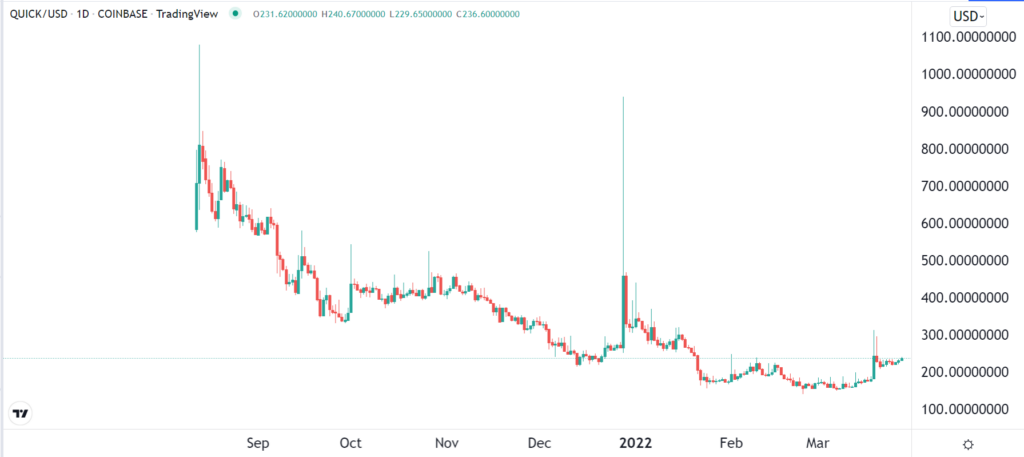
QuickSwap is a DEX that has a TVL of over $870 million, while the QUICK token has a market value of $86 million.
SushiSwap
SushiSwap is one of the biggest DEXs in the world. Its size is mostly because the developers have created versions based on most blockchains like Ethereum, Polygon, Avalanche, and Fantom. It is similar to other DEXs in that it lets people swap tokens, trade, and earn. Its Polygon app has a TVL of $234 million, while the Ethereum one has $2.6 billion. The SUSHI token is valued at $770 million.
Summary
Polygon is a leading blockchain platform. However, a closer look at its ecosystem shows that activity is slowing. For example, its TVL has fallen from over $10 billion to about $7 billion. There are also concerns about its necessity when Ethereum completes the merge process, which will make it substantially faster and more cost-effective.
